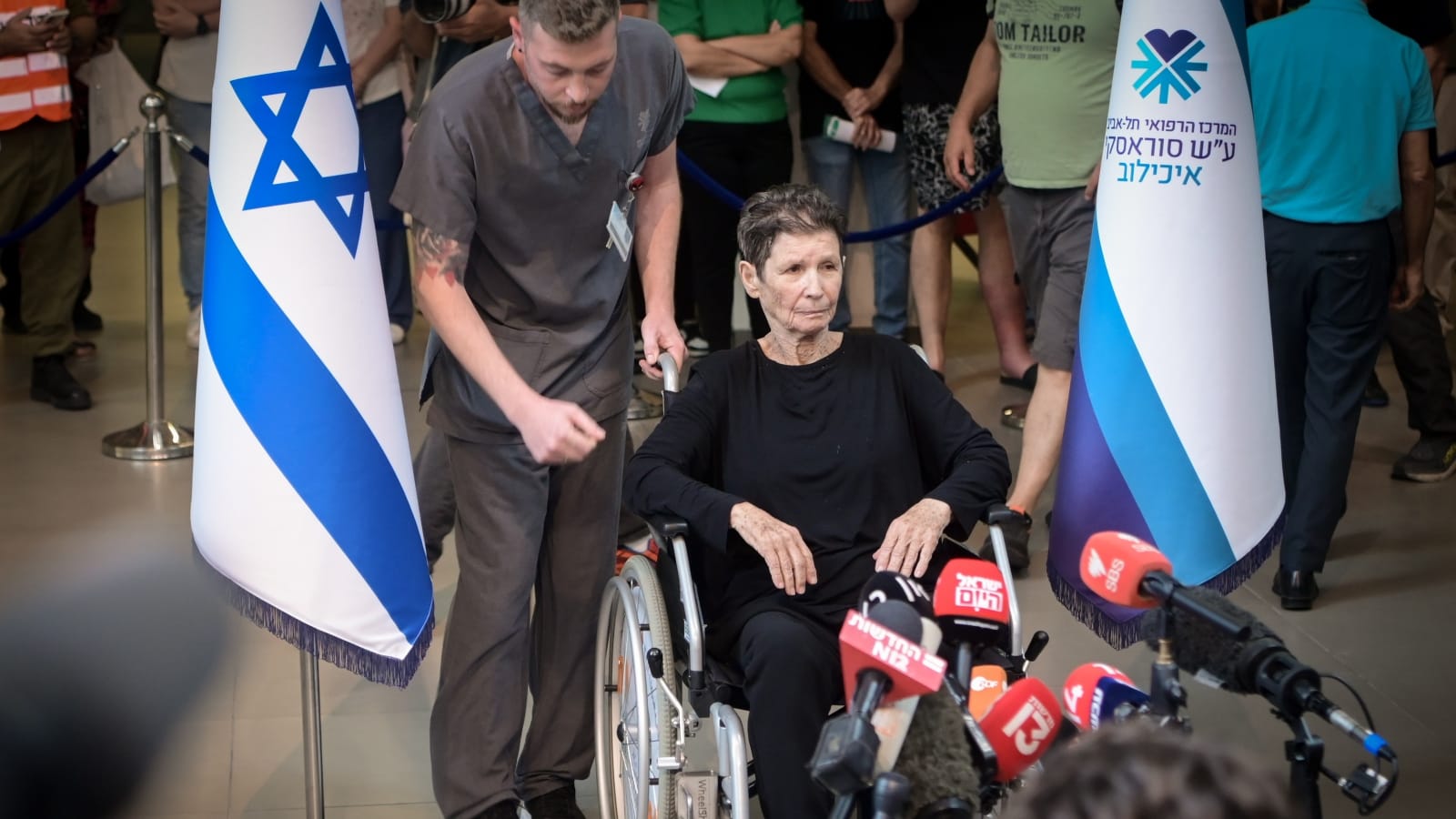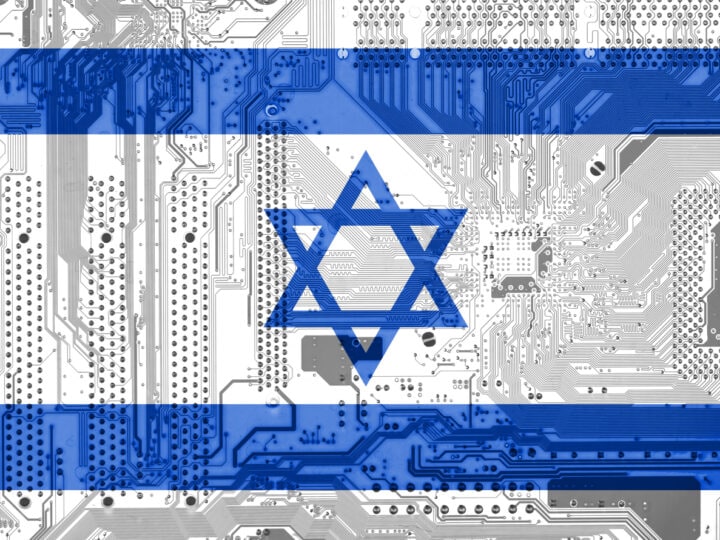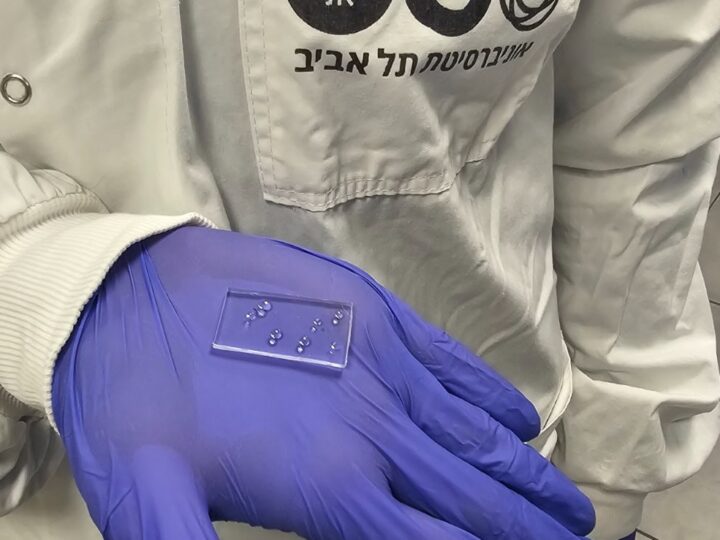Hamas terrorists released two elderly hostages on Monday night: Yocheved Lifshitz, 85, and Nurit Cooper, 79, of Kibbutz Nir Oz.
Their husbands, both in their 80s, remain among the more than 200 kidnapped Israelis of all ages being held in Gaza since October 7. Only four have been freed thus far.
For many years, Lifshitz, a peace activisit, and her husband, Oded, have been voluntarily transporting Gaza residents in need of medical care to Israeli hospitals.
But on the morning of October 7, Hamas terrorists from Gaza infiltrated Kibbutz Nir Oz, killing and wounding residents and taking others hostage.
Hamas released a video of Lifshitz and Cooper being escorted to Red Cross officials. Lifshitz can be seen shaking the hand of a Hamas escort before they parted, saying “shalom, salaam,” Hebrew and Arabic for “peace.”
Arriving at Tel Aviv Sourasky Medical Center after her release, Lifshitz described her harrowing ordeal to reporters, saying that she never expected such a situation would ever happen.
“I went through a nightmare we couldn’t have imagined. I constantly have the images of what happened repeating in my mind,” she said.
“They went wild. They blew up the [border] fence we built for two and a half billion dollars. They attacked our houses. They killed and kidnapped both old and young with no distinction.
“When they took me, they put me on a motorcycle, tied with [my] legs on one side and my head on the other, and I lay there while they raced through the fields. There was a motorcycle on either side of us and one behind us.
“As we rode, the motorcycle rider hit me with a wooden pole. They didn’t break my ribs, but it hurt me a lot in that area, making it difficult to breathe. They stole my watch and jewelry while I was on the motorcycle,” Lifshitz said. “There was a person with us who was injured in the hands and legs when they brought him on the motorcycle; it was heartbreaking to see that.”
The hostages were first held in a town not far over the border. “After that, I don’t know where I was taken,” she said.
“Eventually, we went underground and walked for kilometers in wet tunnels, for two or three hours in a spider web of tunnels. We went through the tunnels until we reached a large hall. We were a group of 25 people, and they separated us according to which kibbutz we were from. There were five of us from Kibbutz Nir Oz.”
Lifshitz said their guards “spoke to us and ate with us. They said they didn’t want to talk about [the] politics of what happened.”
A doctor checked on the hostages every other day, bringing medications and tending wounds. The captors were concerned with hygiene and cleaned the toilets every day, she said.
Lifshitz expressed her disappointment that Israel’s security forces failed to predict or preempt the deadly surprise attacks on southern Israel. The Hamas terrorists, she said, had “prepared for this for a long time.”
At the hospital, where her daughter and grandson came to see her, Lifshitz said, “It was difficult, but we will get through this.”

















